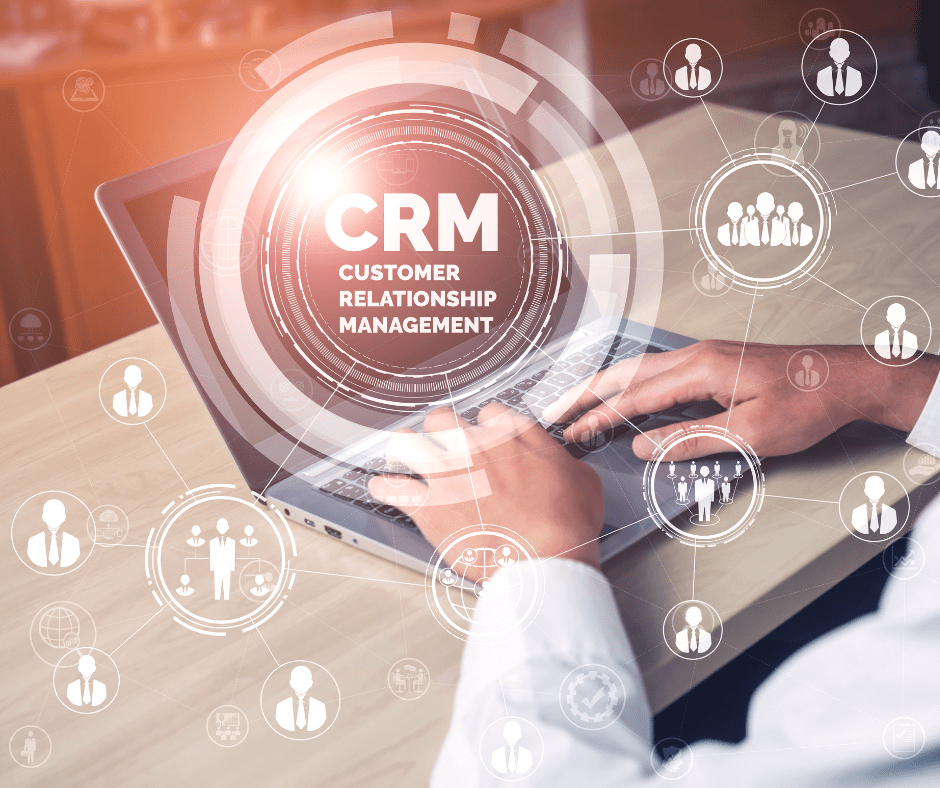In today’s ever-changing business world, providing excellent customer service is crucial for success. By proactively tackling challenges like user adoption and data quality, your CRM can become a powerful tool for fostering lasting client relationships. These can range from low user adoption to concerns around data security. But don’t worry; we’re here to help! We’ll explore these key issues and provide practical tips to improve customer service strategies. Join us to take your customer relationships to the next level and drive remarkable business growth.

Overview
Understanding the essence of customer service as the cornerstone of business success, the article delves into the intricate realm of customer relationship management (CRM) in retail. It highlights 10 prevalent challenges faced during CRM implementation, from user adoption to data security concerns, emphasising the need for proactive management. Moreover, it offers insightful tips on effective customer communication, advocating for diverse content, multi-channel outreach, consistency, timely responses, and adaptive strategies. Furthermore, Off-Grid Customer Experience Courses are the premier choice for hands-on CRM mastery, underscoring their immersive learning approach in addressing CRM complexities.
What is Customer Service?
Customer service is the backbone of any thriving enterprise, comprising a series of strategies and techniques to meet and surpass customer expectations. It involves much more than simply resolving issues; it fosters a pleasant customer experience at all contact points. Effective customer service establishes a foundation of trust, loyalty, and customer satisfaction, ranging from answering queries to resolving complaints.

What Defines Good Customer Service in Retail?
The key to success in the highly competitive retail industry is making transactions and providing exceptional customer service. To achieve this, retailers must go beyond just selling products and create an enjoyable and seamless shopping experience. By offering personalised assistance, efficient problem resolution, and a customer-centric approach, retailers can create a solid and positive impression in the minds of their customers, leading to increased loyalty and advocacy. Retailers can build a strong brand reputation and thrive in today’s market by focusing on every interaction as an opportunity to delight customers.

10 Customer Relationship Management (CRM) Issues
Did you know many businesses use Customer Relationship Management (CRM) to manage customer interactions and boost sales? However, implementing a CRM system can be complex, and businesses often face many challenges. That’s why understanding and proactively managing these CRM issues is essential for businesses aiming to enhance customer relationships and optimise their operations. So, let’s take a closer look at the top 10 challenges businesses often encounter when implementing a CRM system.
1. Poor User Adoption
For a successful Customer Relationship Management (CRM) implementation, it is essential to ensure that the system is widely accepted and used by all users. If user adoption is high, it can negatively impact the system’s overall effectiveness and limit the potential benefits it can provide. Therefore, it is crucial to encourage and support user acceptance and utilisation to achieve the desired outcomes from the CRM system.
2. Inaccurate or Outdated Data
Having accurate and current information is crucial for the success of your customer relationship management (CRM) system. Outdated or inaccurate data can significantly impact the quality of insights and decision-making, leading to suboptimal outcomes in managing your customers effectively. Thus, it is vital to ensure that your data is always up-to-date to ensure the effectiveness of your customer management efforts.
3. Integration Issues
To succeed with CRM, it’s crucial to ensure that your existing systems integrate seamlessly. Any integration issues can create data silos, which can, in turn, hinder your ability to obtain a comprehensive and unified view of all customer interactions.
4. Lack of User-Friendliness
Having a user-friendly interface is crucial for engaging users effectively. A complex or unintuitive CRM system can easily lead to user frustration, negatively impacting overall productivity. Therefore, it is essential to design and implement CRM systems that are easy to navigate, with a user interface that is intuitive, straightforward, and efficient. This will enhance user engagement and overall productivity and improve user satisfaction and loyalty.
5. Lack of Customisation
Every business has its own set of requirements and workflows that are unique to its operations. Therefore, a CRM system that lacks customisation options can significantly limit its ability to adapt to those specific needs and processes. This may result in a less efficient workflow, unsatisfactory customer experience, and, ultimately, a loss in business revenue.
6. Cost
When businesses implement a CRM system, they must factor in various costs, such as software, training, and maintenance. These costs can add up to a considerable investment, and managing them effectively ensures a positive return. It’s essential to plan out the expenses so businesses can make informed decisions about which features and services they can afford to implement and which ones they may need to hold off on for the time being. By managing costs effectively, businesses can ensure their CRM implementation succeeds and delivers the desired results.
7. Limited Reporting and Analytics
It would be great to have more reporting and analytics capabilities to make better strategic decisions. These capabilities will help you derive meaningful insights from customer data and remove any hindrance in your path towards success.
8. Poor Technical Support
Managing technical problems can be a daunting and stressful experience. If more technical assistance is needed, it can lead to extended system inactivity, disrupting daily operations and declining customer satisfaction.
9. Limited Mobile Access
In today’s world, where mobile devices have become an integral part of our lives, having access to CRM functionalities on the go is becoming more crucial than ever. This allows you to efficiently manage customer relationships and stay connected with clients anytime, anywhere, without being tied to your desk. Whether travelling, attending a meeting, or simply out of the office, having a mobile CRM solution at your fingertips can help you streamline your work processes and stay on top of your business tasks.
10. Data Security Concerns
Protecting your customers’ sensitive information is one of the most important business aspects. Ensuring the security of customer data is critical, as any breach can erode customer trust and lead to regulatory issues. Therefore, it is essential to take necessary measures to address data security concerns and keep your customer’s sensitive information safe and secure.

How To Communicate With Customers In Retail
If you’re in retail, you know that good communication with customers is vital to building solid relationships and a positive brand image. To help you out, I’ve got some tips on communicating effectively with your customers. Check them out below!
Have A Range Of Content To Share
To connect with your customers, you must offer various communication content that caters to their preferences. This could include informative articles, engaging visuals, or promotional offers. By diversifying your content, you’ll keep your communication fresh and relevant.
Use Multiple Channels
Different communication channels like social media, email, or in-store signage can help you better connect with your customers. By reaching out to them through their preferred channels, you can increase the chances of your message being seen and heard. Sounds like a win-win.
Reach Customers In The Places They Consume Information
Knowing your audience is vital so you can connect with them better. Ensure you use the right platforms and mediums to reach your customers and get your message across. That way, you can be sure that your message is being heard by the people who want to hear it!
Create A Regular Communications Schedule
Here is a quick tip with you. When it comes to communicating with your customers, consistency is key! Establishing a regular schedule for sharing updates, promotions, or valuable content will help build anticipation and engagement. Plus, who doesn’t love a little predictability in their life?
Reply In A Timely Manner
It’s always a good idea to respond to customer inquiries quickly, whether they reach out to you online or in-store. This shows that you value their time and satisfaction and helps to create a positive experience for them. So don’t hesitate to be prompt and efficient in your responses!
Regularly Analyse And Adapt
It’s crucial to assess whether your communication strategies are hitting the mark. One way to do this is to check what your customers are saying, keep an eye on their engagement, and be willing to tweak your approach. This will help you stay nimble and ensure your communication stays relevant and resonates with your audience.
Ready to Take the Next Step?
Embarking on a journey towards expertise in Customer Relationship Management (CRM) demands more than just theoretical knowledge—it requires a dynamic and hands-on approach. Off-Grid Customer Experience Courses emerge as the unrivalled choice for individuals aspiring to master CRM for several compelling reasons. These courses provide an immersive and comprehensive learning experience, delving deep into the nuances of CRM challenges, from user adoption hurdles to data security concerns.
So what are you waiting for? Enrol now with Off-Grid!
Customer Service: FAQs
What is the primary concern of customer relationship management?
The main concern of customer relationship management is to improve customer service relationships, assist with customer retention, and drive sales growth by using technology to manage all company interactions with customers and potential customers. CRM systems compile customer data across channels to streamline processes and improve profitability.
How can businesses boost user adoption of CRM systems?
To boost user adoption of CRM systems, businesses should provide comprehensive training, involve employees in the CRM selection process, and choose a user-friendly CRM tailored to business processes. This will help ensure the organisation successfully implements and uses the CRM system.
Why is maintaining high-quality customer data important in CRM?
Maintaining high-quality customer data in CRM is essential as it directly impacts the effectiveness of marketing and sales activities and improves customer service. High-quality data helps understand customer needs and behaviours, leading to better-targeted marketing and improved customer satisfaction.




